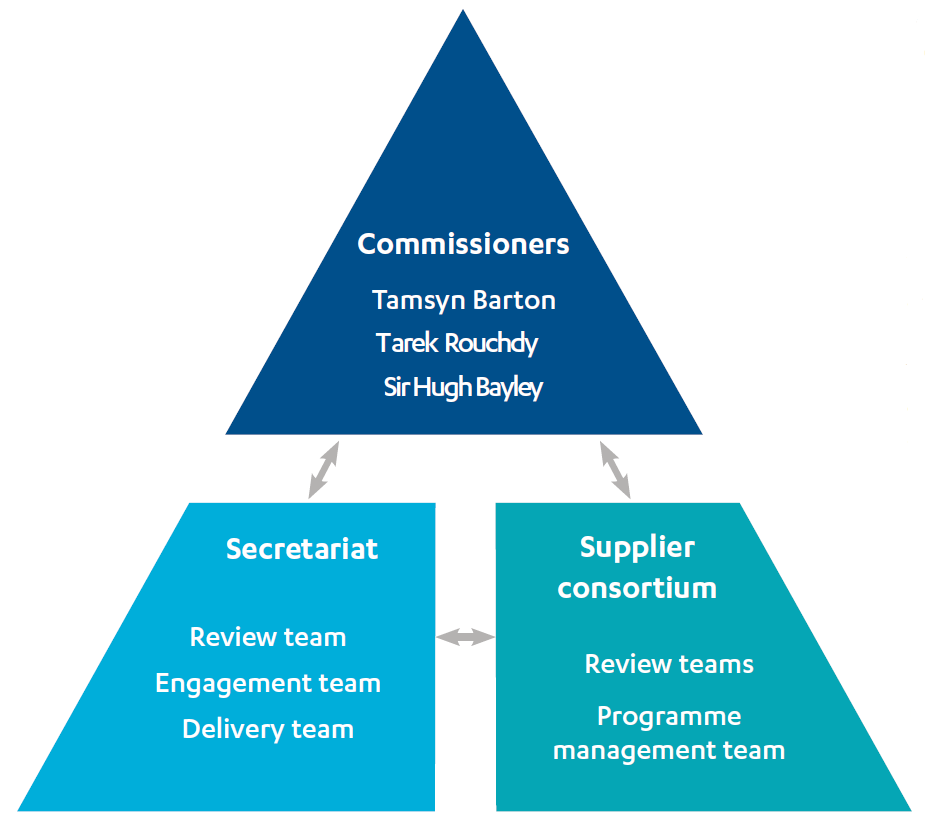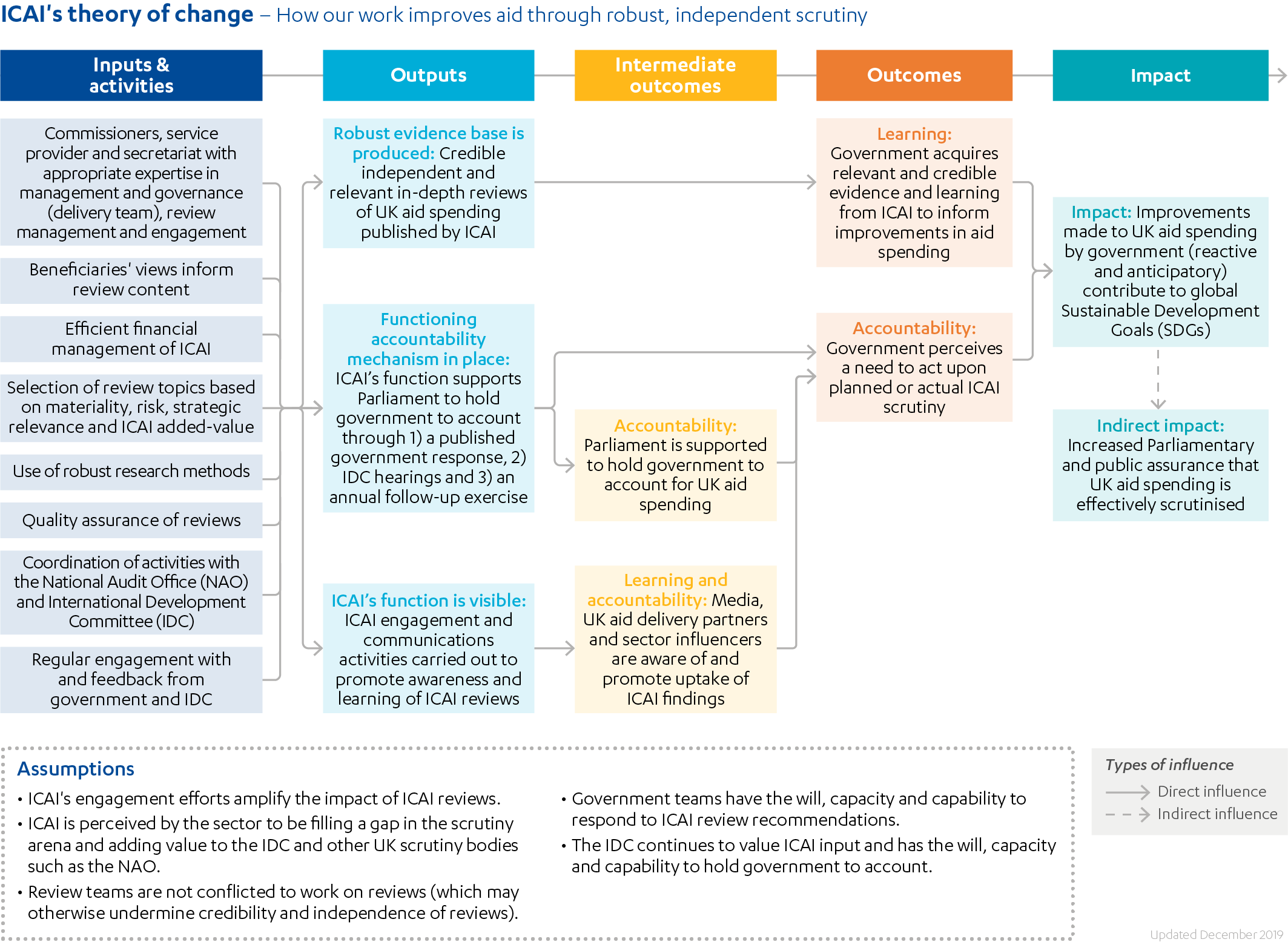About Us
The Independent Commission for Aid Impact scrutinises UK aid spending. We operate independently of government and report to Parliament through the House of Commons International Development Committee (IDC) or their ICAI Sub-Committee.
We work to ensure UK aid is spent effectively for those who need it most, and delivers value for UK taxpayers.
ICAI’s remit
ICAI’s formal remit is to provide independent evaluation and scrutiny of the impact and value for money of all UK government ODA. This involves:
- carrying out a small number of well-prioritised, well-evidenced, credible, thematic reviews on strategic issues faced by the UK government’s aid spending
- informing and supporting Parliament in its role of holding the UK government to account
- ensuring our work is made available to the public.
ICAI’s mandate
ICAI’s mandate covers all ODA, whichever department it is spent by. In addition to the Foreign, Commonwealth and Development Office, aid-spending departments include the Department for Business, Energy and Industrial Strategy, the Home Office, the Department of Health and Social Care, the Department for Environment, Food and Rural Affairs and cross-government funds such as the Conflict, Stability and Security Fund and the Prosperity Fund.
Our mandate does not cover aid spent by the devolved Scottish and Welsh governments.
Core values
ICAI operates on the basis of the following core values:
- Accountability: we conduct our work with objectivity and impartiality, assisting the IDC to hold government departments to account for the effectiveness of UK aid. We are also accountable to the IDC for our performance.
- Feedback and learning: we believe that to do our job well, accountability must go hand-in-hand with learning. Building effective feedback loops into our review process will be critical to our work.
- Analytical rigour: we are committed to the rigorous use of evidence and analysis in our reviews. ICAI reports rely primarily on existing sources of evidence, supplemented or tested through additional empirical research as appropriate.
- Accessibility: we design and deliver reviews with a clear purpose and audience in mind.
- Transparency: we are committed to transparency in our approach to reviews, including in the way we use and present data and evidence.
ICAI structure
ICAI is led by chief commissioner Dr Tamsyn Barton, and two part-time commissioners, Tarek Rouchdy and Sir Hugh Bayley. This is the third four-year commission. ICAI is supported by a small secretariat based in London.
 ICAI has appointed a service provider to carry out work on its behalf. This work is led by Agulhas Applied Knowledge, a specialist international development consultancy.
ICAI has appointed a service provider to carry out work on its behalf. This work is led by Agulhas Applied Knowledge, a specialist international development consultancy.
Agulhas is supported by Ecorys, ODI and Intrac. (3B Impact has also supported ICAI on three rapid reviews during the current four-year commission).
Read an accessible version of our structure pyramid.
ICAI’s theory of change
ICAI’s theory of change shows how our work improves aid through robust, independent scrutiny.
Download our Theory of Change or read an accessible version.

